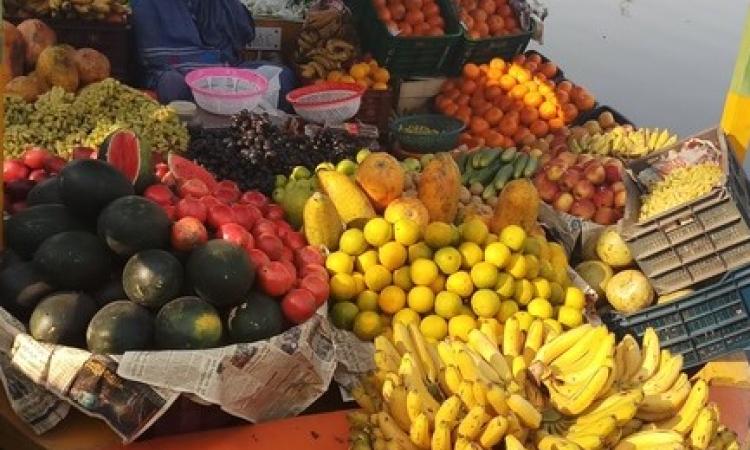
The beautiful city of Kolkata had another first to its credit when the much anticipated floating market was inaugurated on January 24 by the chief minister of West Bengal, Mamata Banerjee. Modelled like Bangkok’s floating market, it is set up at a whopping cost of around Rs 10 crore by the Kolkata Metropolitan Development Authority (KMDA).
The market functions solely on boats, on the lake in Patuli which is on the eastern fringes of the city. In this market, shopkeepers sell fruits, vegetables and fish among other produce. Around 228 shopkeepers from the nearby market have been rehabilitated here in the 114 boats with 202 shops already functional. While throwing the market open for visitors, urban development minister Firhad Hakim had remarked that “Calcutta is better than London now”, an obvious reference to the chief minister’s dream of turning Kolkata into London.
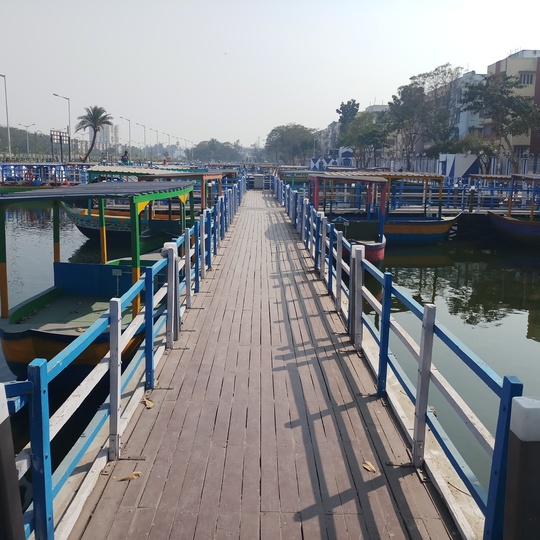
Garbage everywhere
But the much-hyped market paints a picture of neglect and apathy within days of its inauguration. A large amount of polythene bags, empty plastic bottles and leftover food are found dumped in the water exposing the tall claims of the administration that they keep the market clean while also raising the dangers of many water-borne diseases.
Shopkeepers complain about the sordid state of affairs and say that no proper steps are being taken to keep the water clean. “The market has been opened in haste as the lake where the market sits now was used for fishing. The authorities didn’t clean it properly before starting the construction of the market. The unclean mud still sits at the bottom,” says barber Subhendu Pramanik (45) sounding visibly upset over the laxity of the KMDA entrusted with its maintenance.
He also points out that the dustbins which are already scarce in numbers have been placed on the concrete pathway around the market where seating arrangements have been made for visitors. No bins, however, have been placed on the wooden walkway between the boats selling produce.
“What’s the point in keeping the dustbins on the concrete path on both ends of the market when it is necessary to keep it on the wooden pathway? People who enter the market munching some snacks do not take the pain to walk a few metres to dump the polythene bags in the dustbins. They simply throw them into the water. It is not possible for security guards to keep a close vigil on every visitor,” he adds.
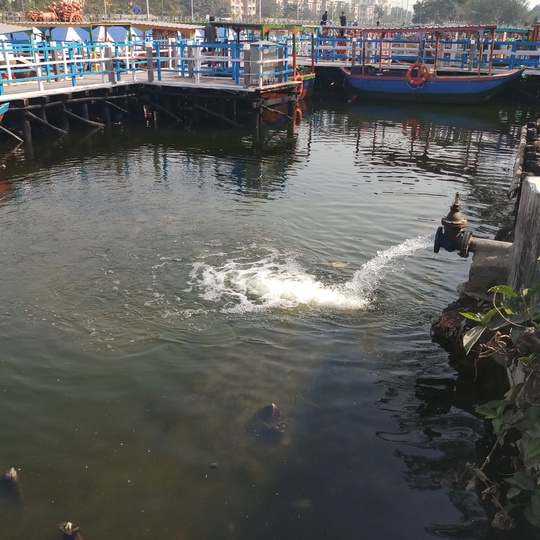
Sushil Naiya, a fish seller, shares the view. “The authorities have given us bamboo baskets and have told us not to throw the waste in the water. We have been following the norms strictly as unclean water will only raise the risk of diseases and infections. It will also keep the customers away. The KMDA should try to make the visitors and locals who are dumping the garbage into the water aware of the consequences of their behaviour before it brings disrepute to the market,” Naiya says.
Lack of facilities
Visitors have their share of grievances, too. “There is no potable water available in the market. My minor daughter was thirsty but I couldn’t find any water. Eventually, I had to go outside the market to buy a bottle of water for her. The authorities should have looked into this primary requirement before throwing the market open for people,” says Rituporna Chakravorty (28), a homemaker who has come to the market to buy vegetables with her five-year-old daughter.
A section of shopkeepers also concedes that they arrange water from outside for drinking as water is available only for fixed hours from a tap inside the market.
The lack of proper toilet facility is another major issue pointed out by both visitors and shopkeepers. “The market is spread over a vast area with 114 boats but there is only one toilet to cater to the needs of the shopkeepers and visitors. They should have built at least three toilets at various spots in the market for convenience,” says Netai Biswas, an octogenarian who has come to visit the market.
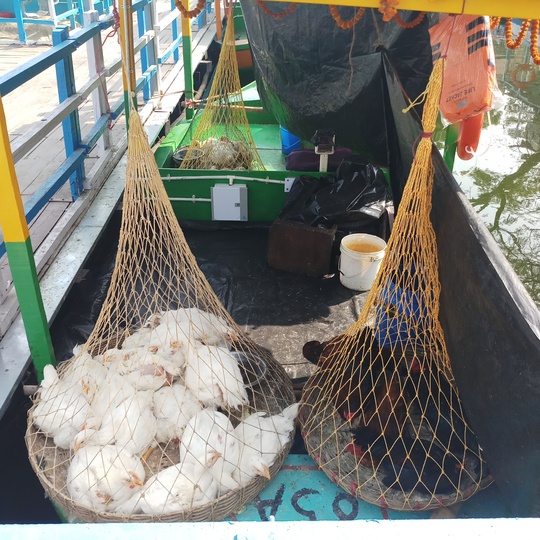
The KMDA, entrusted with its maintenance, however, claims that sufficient arrangements have been made for proper maintenance of the facilities. “The water is cleaned thrice a day. We have installed two water aerators to supply oxygen to the water. We have strictly prohibited the entry of plastic and other polythene bags in the market. The shopkeepers have been given bamboo baskets to prevent the use of polythene. A sluice gate has also been erected to drain out the excess water during monsoon,” says Avanindra Singh, the chief executive officer (CEO) of KMDA. 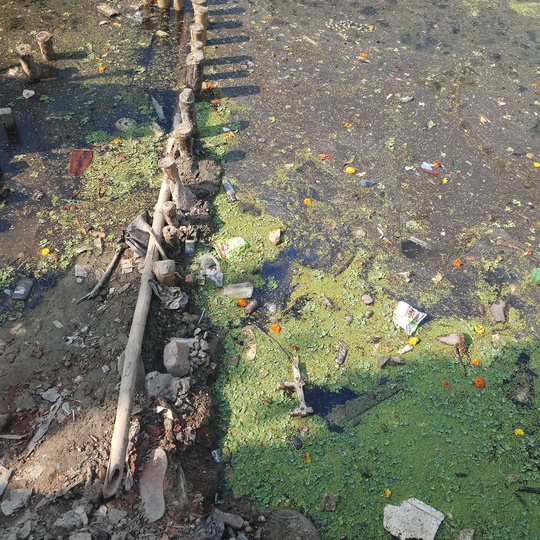
He, however, refutes allegations of the lack of potable water or toilets. “We have made proper arrangements for the drinking water and the taps are being maintained by the corporation. We also have toilets for the visitors and sellers,” he says.
Health hazards galore
Health experts point out the hazards of throwing waste into the stagnant water. “The stagnant water could turn into a breeding ground of mosquito larvae which could lead to the spread of dengue, malaria and other water-borne diseases,” says professor Nishith Pal, the head of the department of microbiology at the state-run Nil Ratan Sircar(NRS) medical college and hospital in Kolkata.
Suggesting remedies he says fish, frogs and snails should be released into the water and allowed to breed and multiply which would eat away the eggs of the mosquitoes and clean the water.
A shopkeeper points at the bamboo structures supporting the market where mosquito larvae are found to be breeding. The security guards of the market say that they can’t stand near the market because they get bitten by mosquitoes continuously.
“We have been on duty since the market opened in the morning but it is becoming increasingly difficult to do our job with each passing hour because of mosquitoes. I wonder what would happen as days pass by,” says a security guard requesting anonymity.
The shopkeepers and visitors are worried that things might take a bad turn as the days progress and the initial hype over the floating market fades away.
/articles/floating-filth-mars-market-water